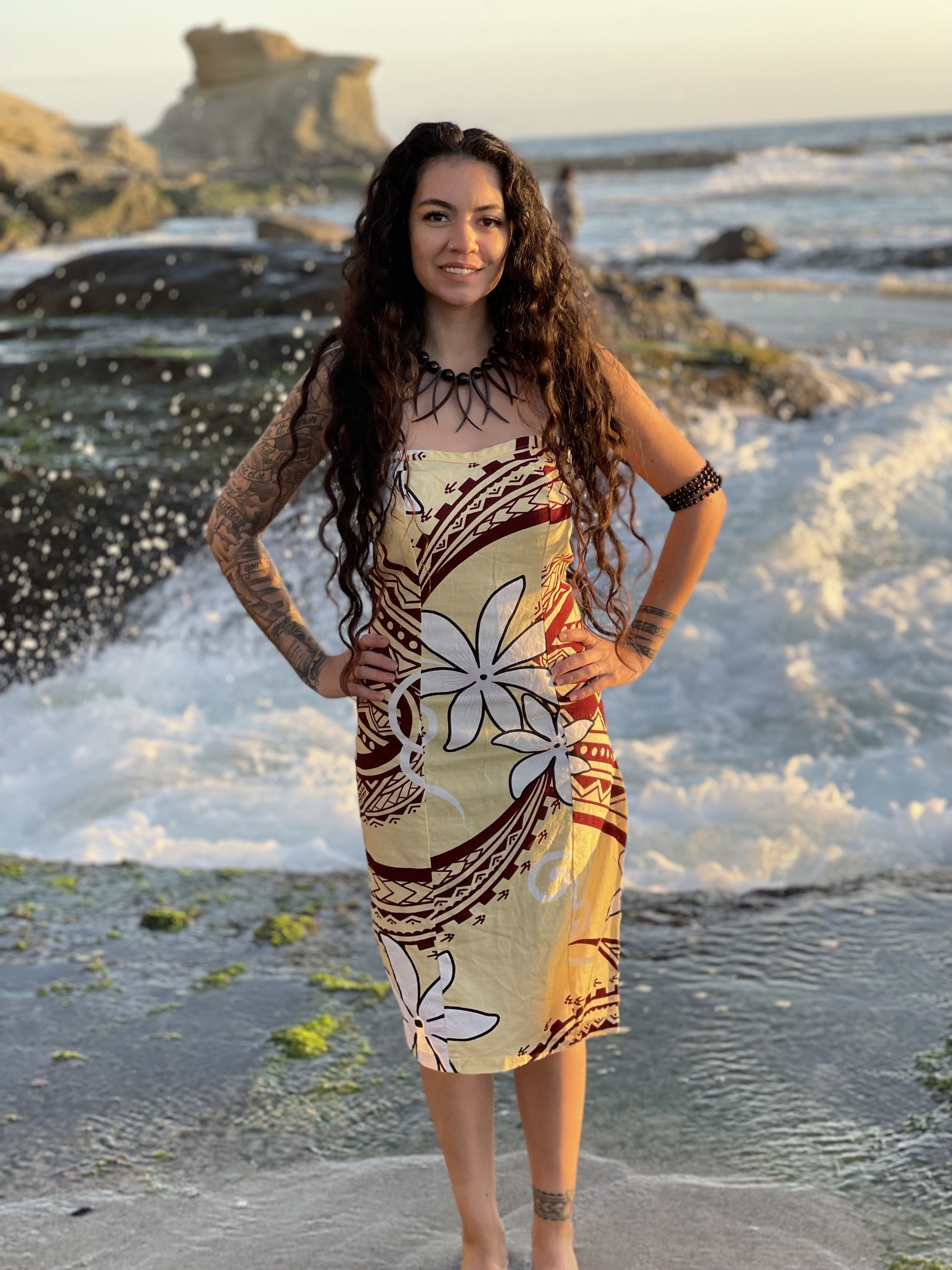Hi, I'm Morgan! And this is my mom, Anna-Rita.
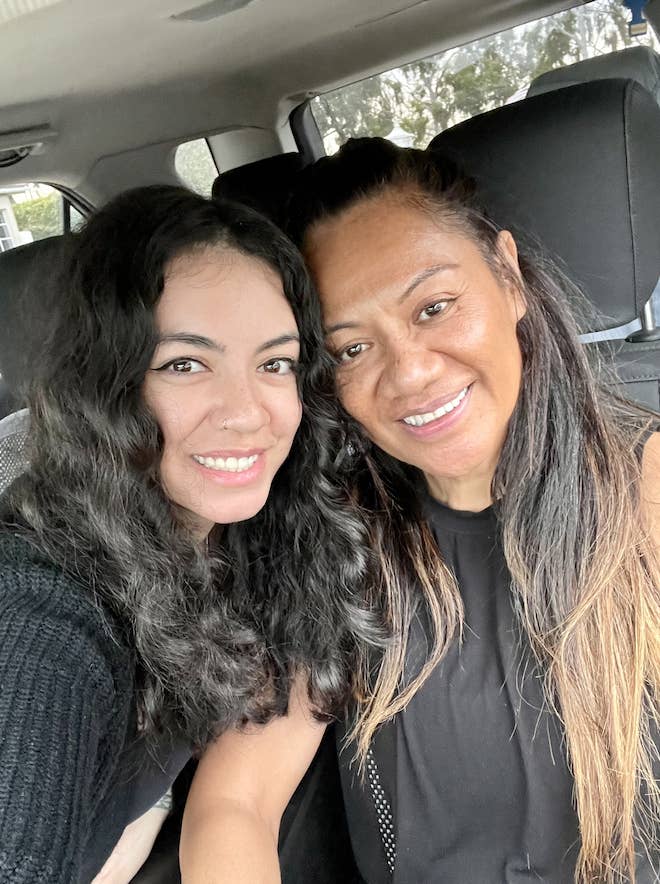
I thought it would be fun to look back and reflect on some of the things my Samoan mom taught me.
Disclaimer: I'm sure some of this stuff isn't exclusive to Samoans. These are just lessons that I learned from my own mom. And these things might not apply to all Samoan families; it's just my personal experience!
1. Family is everything.
Family is at the center of Samoan culture, and influences a lot of traditional elements, like the matai (chief) system. It's the most important and fundamental aspect of our lives. My cousin even got the word "aiga" ("family" in Samoan) tattooed across his stomach, LOL. Our families are usually very tight-knit, and there's a big focus on supporting each other.
Since my mom's siblings and their kids all live overseas, she taught me to always look after my younger brother. He and I remain super close, even though I moved across the country last year. I'm already thinking I'll move back to California eventually because I miss him too much!
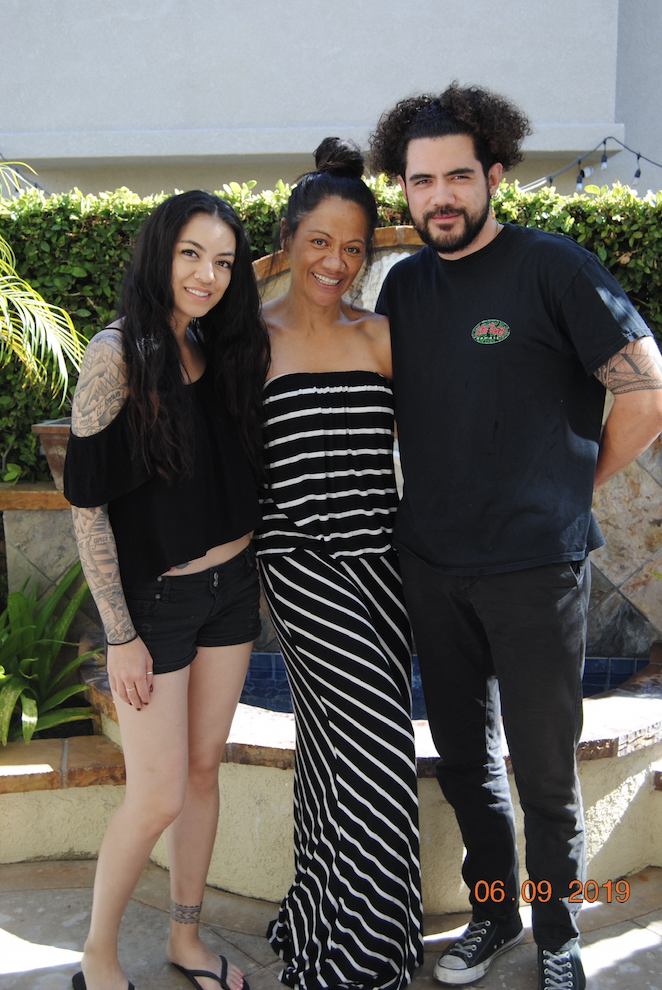
2. Island food is the best!
I'm a pretty picky eater, but I could easily live off sapasui (Samoan chop suey) and panikeke (fried banana pancake balls) for the rest of my life. And they're from New Zealand, not Samoa, but my mom's Afghan cookies are the best I've ever had.
3. Vicks cures all.
Have a cold? Vicks! Have a fever? Vicks! Feeling sad? Vicks! I'm half kidding, but my mom seriously made me use this vapor rub all the time while I was growing up, and I still do today. I put it under my nose and on my chest whenever I'm starting to feel sick, and it immediately comforts me. That menthol scent is basically the smell of my childhood.
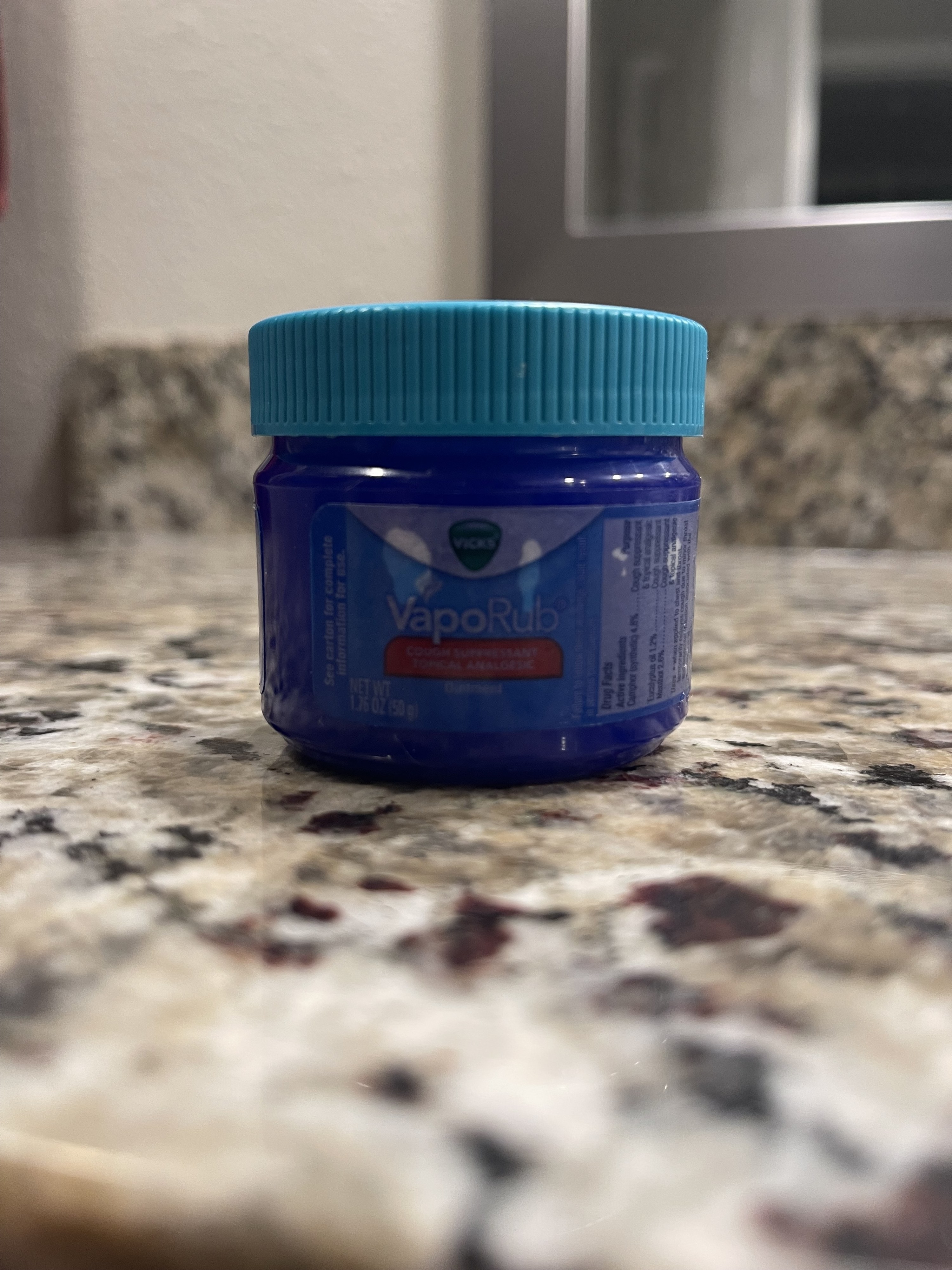
4. To get through this life, you've gotta have a sense of humor.
Polynesians are known for being funny people. When the family gets together, we'll often roast each other (out of love!). My mom's the one who taught me that you can't take life too seriously. You gotta be able to laugh at yourself sometimes.
5. You can wear a lavalava anywhere and everywhere.
A lavalava (also called a sarong or an 'ie) is a large, rectangular piece of cloth that you usually tie around your hips. You can wear it long or you can fold it in half so it's about the level of your knees. Sometimes, if I'm feeling lazy, I'll just tie one around my chest — bam! Instant dress.
Lavalavas are the best because they're so versatile. Whether I'm running errands on a hot day, dancing, going out to lunch, or walking the dog, I'll often throw one on. They come in so many different colors and designs, and I love collecting new patterns.
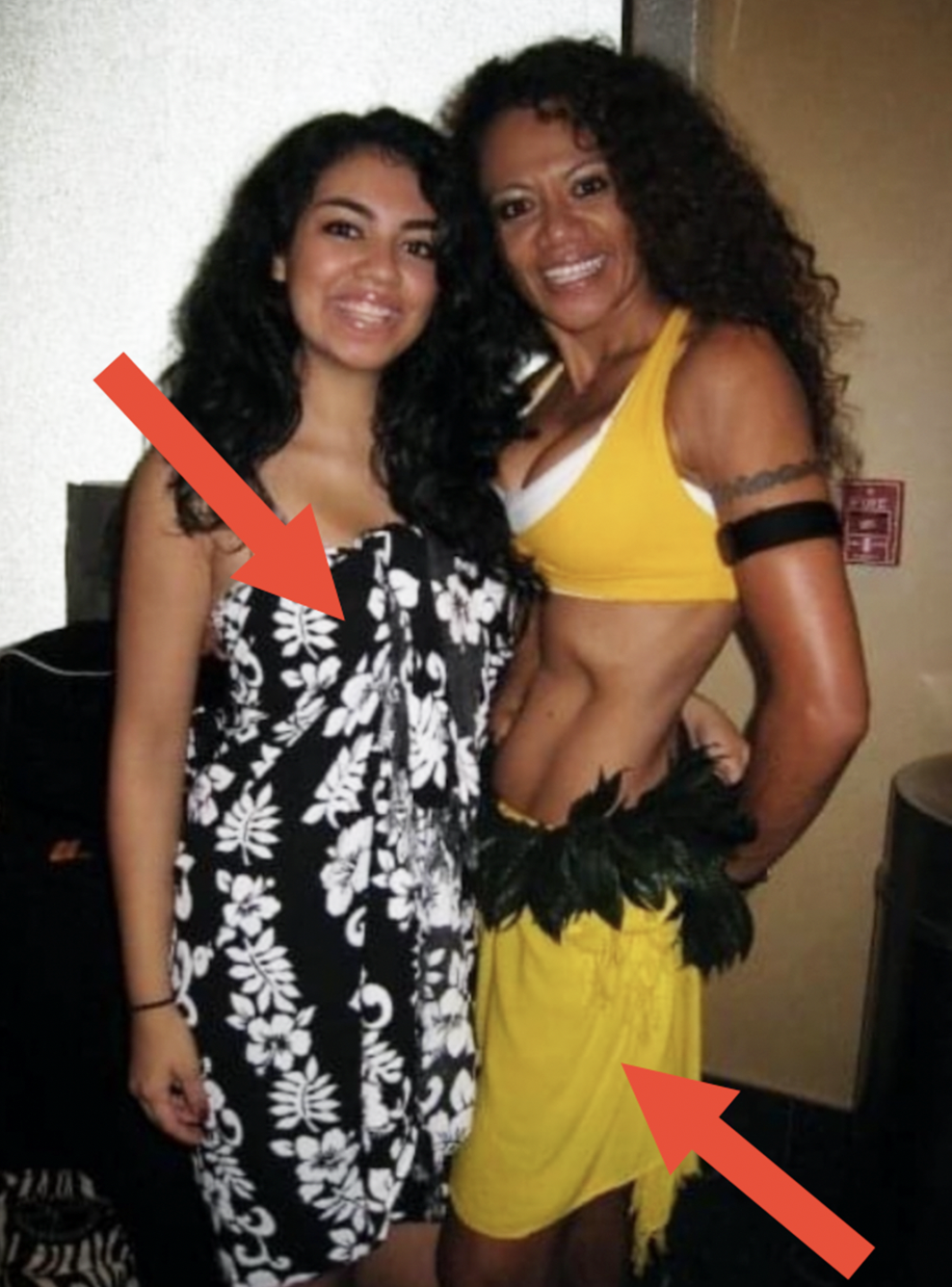
6. Always wear clean underwear in case you end up at the hospital.
Honestly, I don't know if this is a common islander saying or if this was just my mom, LOL. But she would always tell me to wear clean underwear in case I got in an accident and ended up at the hospital. If I were ever seriously injured, I'm sure the doctors would be more focused on saving my life than on the state of my underwear, but I've never forgotten this.
7. It's important to respect your elders.
In my family, my nana is our matriarch. All of us grandkids view her with love and respect. And that extends to all my aunties, uncles, and just older folks in general, as they have more cultural knowledge, wisdom, and life experience than I do.
That's not to say that they're always right; I often have different viewpoints from my older relatives, especially since I grew up in the US, while they're from Samoa or New Zealand. But there's still a way to honor them with my words and actions even when I disagree with them.
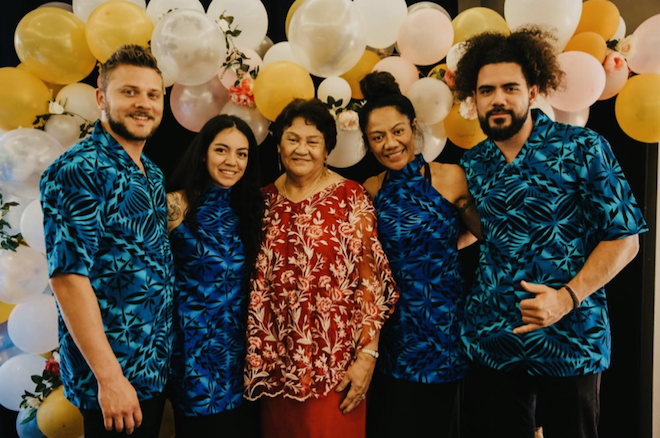
8. Focus on the community rather than the individual.
We believe that our resources belong not just to ourselves but to our families. For example, we have something called a fa'alavelave, where relatives contribute money for big events like weddings and funerals. (These are often super expensive, since we have such big families. I was a bridesmaid in my cousin's wedding a few years ago, and there were 400 guests!) When all relatives contribute, the financial burden is eased for the person planning the event. And one day, it'll come back around when I'm planning a wedding or funeral.
Another example is our living arrangements. Samoans generally frown upon putting parents in nursing homes, so multigenerational homes are common. Many folks want to look after their parents the way they were taken care of as kids.
9. Tattoos connect us with our culture and ancestors.
For Pacific Islanders, the tradition of tattoos goes back thousands of years. The word "tattoo" even comes from the Samoan word "tatau." Each symbol has a specific meaning — these tattoos can tell stories, reveal your lineage, signify attributes that are important to you, and more. In Samoa, my mom got a thigh tattoo in the traditional way (where they tap the ink into your skin using handmade tools) from a member of the Sulu'ape family, who are master tattooists.
These are the tattoos my mom, brother, and I got when we were in Hawai‘i a few years ago. Many islanders get tattoos with their family members, so it meant a lot to me that the three of us could finally share this experience. It's definitely one of my favorites!
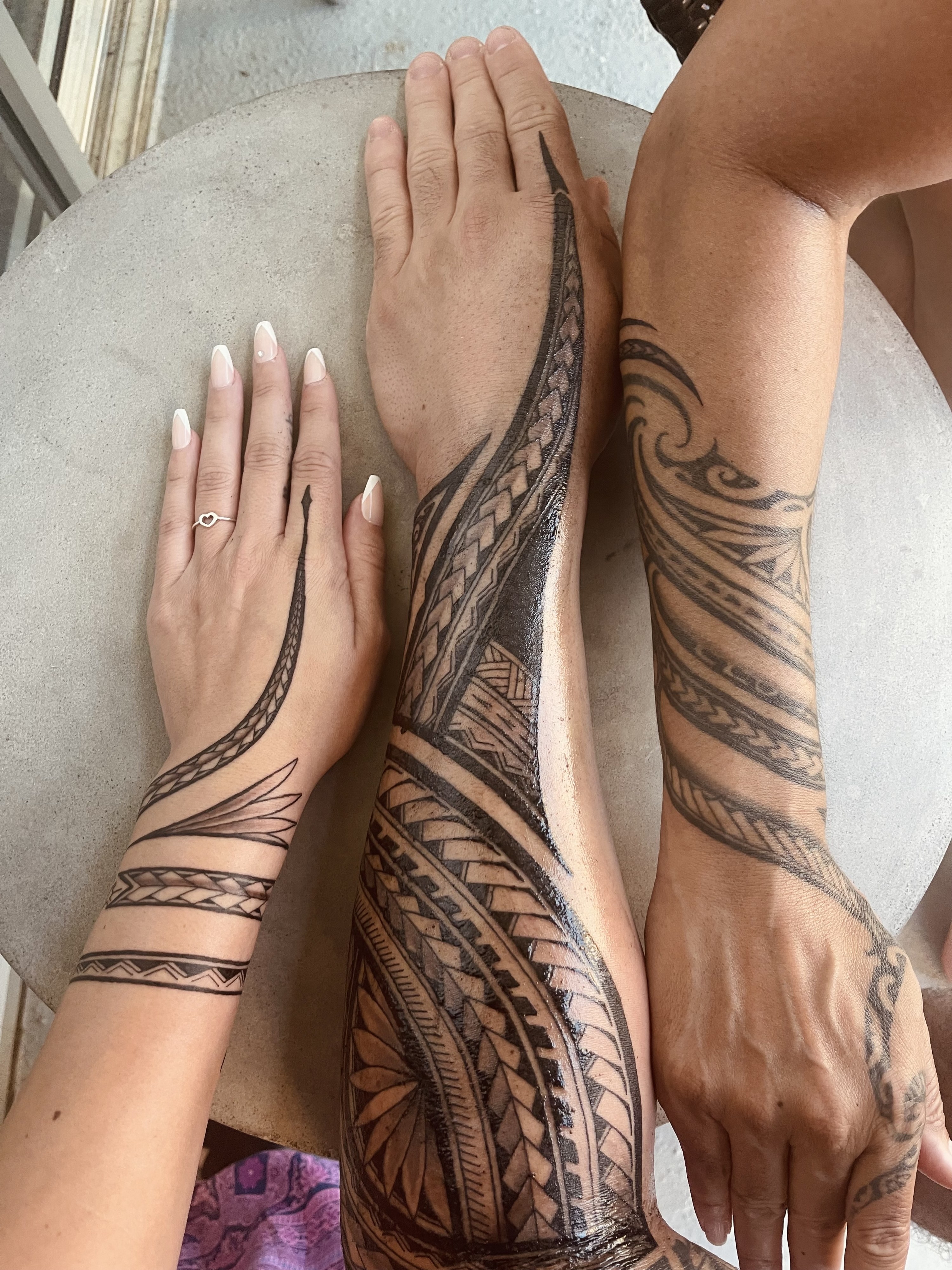
10. Manners matter.
For many Samoan parents, there's a strong expectation that children will be polite and obedient, and my mom was no different. When she moved to the US, she was horrified by all the American children who threw tantrums or misbehaved in public. So I was taught to say "Miss" or "Aunty" before her friends' names (I still do this, actually!). If I didn't catch what someone said, I was told to ask, "Pardon?" instead of "What?" And if we were at a restaurant or on a plane, you better believe my brother and I were being quiet and respectful. Now that I'm an adult, I get even more upset than my mom when there's a kid around who's misbehaving.
11. Dancing is a beautiful way to connect with your heritage.
Growing up, I learned Samoan, Tahitian, and Hawaiian dancing at several halaus (dance schools). It was a wonderful way to appreciate the different islands' cultures. Competitions were amazing because I got to see some of the best dancers in the country, and I was constantly blown away by how talented our people are.
When I was a teenager, my mom created HOT HULA fitness, a Polynesian dance workout. In the moment, I was pretty reluctant to go to the gym every week. But as I got older, I started seeing it as quality time that we could spend together in a way that allowed us to bond over the culture.
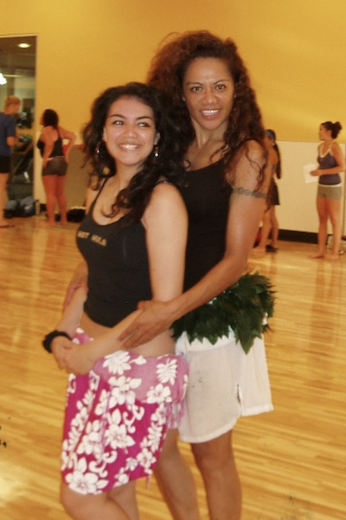
12. "Hakuna matata."
This is definitely just a thing with my mom, not all Samoan mothers, but her absolute favorite phrase is from The Lion King. Whenever I call her upset about something, she lets me vent for a while, then says, "Hakuna matata." As we all remember from the song, it means no worries. When I hear that, it's a good reminder that I need to take a breath and gain some perspective. Whatever I'm frustrated about in the moment is probably not that a big a deal in the long run, so hakuna matata!
13. And finally, have pride in who you are and where you come from!
My mom instilled in me a strong sense of pride in my heritage. I may be afakasi (mixed), and I may have grown up in the US, but that doesn't mean I'm any less Samoan. I'm grateful that I can carry on the traditions of my ancestors, and I love belonging to such a rich and beautiful culture!
